May 21, 2024 | 03:44 GMT +7
May 21, 2024 | 03:44 GMT +7
Hotline: 0913.378.918
May 21, 2024 | 03:44 GMT +7
Hotline: 0913.378.918
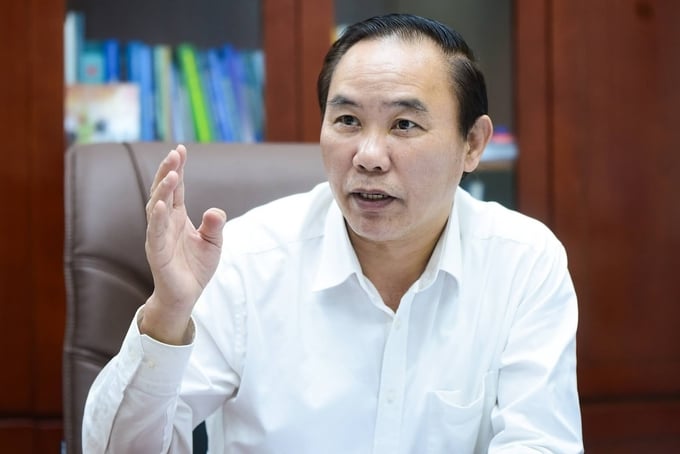
Deputy Minister Phung Duc Tien suggested local governments to establish compliant disease-free zones. Additionally, these zones must be authorized to export animals and animal products to the Chinese market. Photo: PT.
The Ministry of Agriculture and Rural Development issued Announcement No. 2210 on March 27 announcing the conclusions of Deputy Minister Phung Duc Tien at the conference on the implementation of the Memoranda of Understanding between Vietnam and China regarding the establishment of foot-and-mouth disease-free zone.
According to the announcement, Deputy Minister Phung Duc Tien emphasized that the Memorandum of Understanding regarding the establishment of a vaccinated foot-and-mouth disease-free zone signed between the Ministry of Agriculture and Rural Development and the General Administration of Customs of China on December 12, 2023; the agricultural cooperation agreement signed between the Ministry of Agriculture and Rural Development and the Autonomous Region Government of Zhuang Ethnic Minority, Guangxi, China on September 16, 2023, are exceptionally important documents, Accordingly, they represent the Joint Statement between Vietnam and China on the occasion of President Xi Jinping of the People's Republic of China and General Secretary of the Central Committee of the Communist Party of China's official visit to Vietnam in December 2023.
Ministries, sectors, local governments, and businesses have been requested to prioritize and allocate resources to effectively implement the Prime Minister's Directive in the Livestock Development Strategy, and the National Program and Plan for the prevention and control of animal diseases, thereby meeting the requirements to export Vietnamese animals and animal products to China.
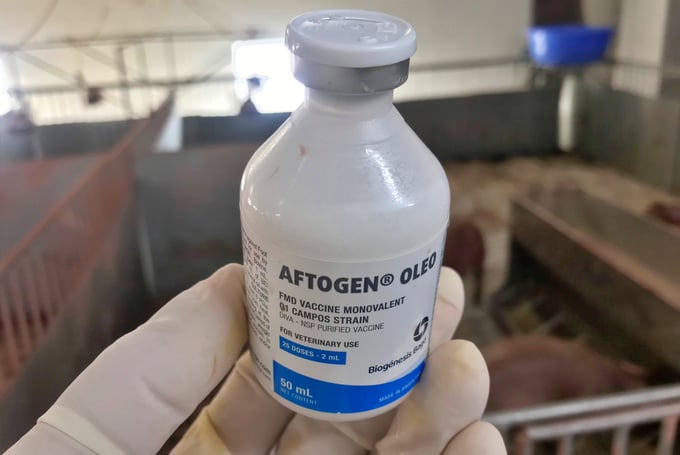
The Ministry of Agriculture and Rural Development has requested local governments to organize large-scale vaccination campaigns, with a focus on foot-and-mouth disease vaccines. Photo: PT.
With the aim of effectively implementing the Memoranda of Understanding and directives from the Prime Minister, the Ministry of Agriculture and Rural Development proposed the People's Committees of provinces and cities to thoroughly study the content of the Memoranda of Understanding and Vietnamese regulations to develop detailed plans. Accordingly, these plans should involve organizing the production of livestock products, and establishing disease-free zones to meet the requirements for exporting animals and animal products to the Chinese market.
Local governments should promptly and effectively implement Circular No. 1297/BNN-TY issued by MARD on February 26, 2024 regarding the implementation of the Memoranda of Understanding between Vietnam and China on establishing disease-free zones for export.
The Deputy Minister suggested the People's Committees of provinces and cities to instruct their respective Departments of Agriculture and Rural Development to coordinate with relevant departments, sectors, and local governments in areas designated for the establishment of disease-free zones. Additionally, budget allocations should be prioritized for coordinated technical solutions.
These solutions include identifying isolated geographical areas or zones to control disease outbreaks, organizing guidance and supervision activities, and ensuring production safety to prevent disease outbreaks.
Additionally, local governments must organize simultaneous vaccination campaigns, with an emphasis on foot-and-mouth disease vaccines. Active surveillance to promptly detect disease agents and post-vaccination monitoring must also be carried out. The goal is to identify no clinical cases for a minimum of 24 months, and no circulating disease agents for a minimum of 12 months.
Strict management of the trade and transportation of animals and animal products into buffer zones, and from buffer zones to disease-free zones, should be enforced. Response plans should be developed in preparation of disease outbreaks. Management of animal slaughter, veterinary hygiene inspections, and monitoring of food safety in production chains should be implemented for the export of animals and animal products.
A system for managing information, data, and tracing origin should be established for animals and animal products within disease-free zones and buffer zones. Support should be provided to potential and leading businesses in finding new partners in China and other importing countries.
Urgent measures should be taken to improve and enhance the capacity of the veterinary system at all levels in accordance with the 2015 Law on Veterinary Medicine, as well as the directives from the Party Central Committee, National Assembly, Government, and Prime Minister.
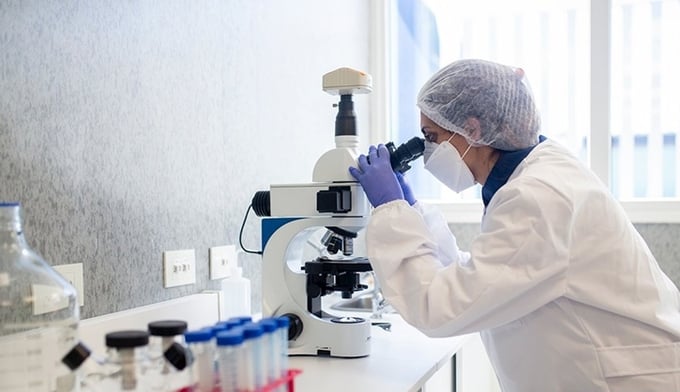
The Ministry of Agriculture and Rural Development has tasked the Department of Animal Health with conducting assessments, and providing China with a list of disease-free facilities and zones that meet the criteria as requested by China. Photo: PT.
Deputy Minister Phung Duc Tien instructed the Department of Animal Health to provide consultation on the Ministry's request for approval to the Prime Minister; issue directives to relevant ministries, sectors, local governments, and businesses on the implementation of the Memoranda of Understanding.
The Department of Animal Health will act as the focal point for exchanging and coordinating technical content with relevant Chinese agencies in the implementation of the Memoranda of Understanding. The Department is also tasked with conducting assessments, and providing China with a list of disease-free facilities and zones that meet the criteria as requested by China.
The Department of Animal Health will discuss with competent authorities in China regarding the procedures for evaluating and certifying disease-free zones, and the form for the Veterinary Health Inspection Certificate.
The Deputy Minister requested the Department of Animal Health to develop, and submit to MARD for approval, a tentative budget allocation proposal for the implementation of the Central Plan on the prevention and control of animal diseases and the establishment of disease-free zones from 2024 to 2030.
Proactive monitoring, sampling, and testing for diseases, post-vaccination evaluation, food safety monitoring for animals and animal products, establishing information and data management systems, and conducting negotiations for exporting animals and animal products are also under the Department's responsibilities.
Additionally, the Department will issue detailed guidelines, which include procedures, steps, methods, etc., to support businesses in researching and registering for the export of animals and animal products to China, with a focus on clarity, transparency, and equity in the production, processing, and export process.
The Department will also establish local technical task forces to coordinate with relevant agencies in providing guidance on organizing production to meet the requirements for exporting animals and animal products to the Chinese market.
Deputy Minister Phung Duc Tien requested the Department of Livestock Production to lead and support local governments and businesses in organizing livestock production along the value chain, with the aim of meeting the export requirements to China.
The National Agricultural Extension Center will oversee the development of livestock models and training courses on livestock production with a focus on biosafety and disease-free value chain.
The Department of Quality Assurance, Processing, and Market Development will implement various promotion programs to introduce Vietnamese animal products to the Chinese market.
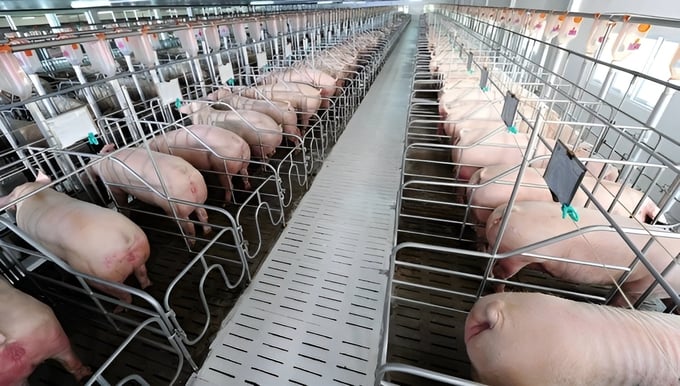
Domestic livestock businesses are preparing documents, information, and data to register for export as per China's requirements and guidance from the Department of Animal Health. Photo: PT.
Deputy Minister Phung Duc Tien requested businesses to thoroughly research the content of Memoranda of Understanding and Vietnamese regulations to develop detailed plans and organize production.
Businesses are advised to request the Department of Animal Health for guidance and technical support on establishing qualified production chains, and obtaining permission to export animals and animal products to the Chinese market.
Deputy Minister Phung Duc Tien requested businesses to actively review and invest in upgrading production and processing facilities to meet export requirements, and coordinate with central and local specialized agencies to effectively establish technical task forces.
Furthermore, the Deputy Minister advised businesses to actively engage in discussions with Chinese and importing partners to collaborate on building value chains, and negotiate the export of animals and animal products.
Businesses are currently preparing documents, information, and data to register for export as per China's requirements and guidance from the Department of Animal Health.
Translated by Nguyen Hai Long
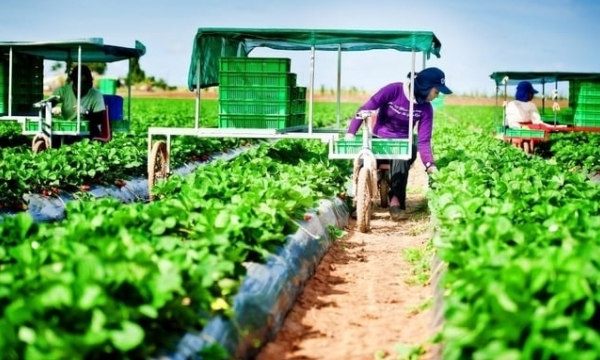
(VAN) According to the Ministry of Labor, Invalids, and Social Affairs, there has been a rise in fraudulent activities involving agricultural employment opportunities in Australia.
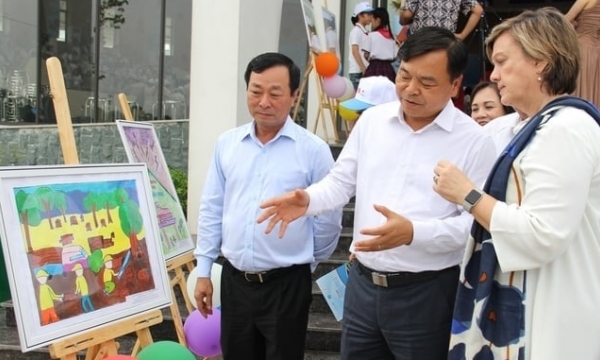
(VAN) According to Deputy Minister Nguyen Hoang Hiep, anticipatory action is a new approach in disaster management, with the aim of enhancing disaster prevention and preparedness.
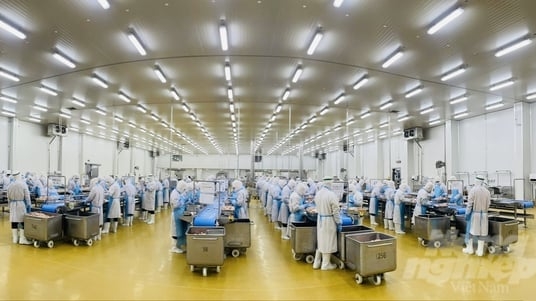
(VAN) The Ministry of Agriculture and Rural Development, in coordination with Tay Ninh Provincial People's Committee, organized a conference on May 18 to promote the export of animals and animal products.
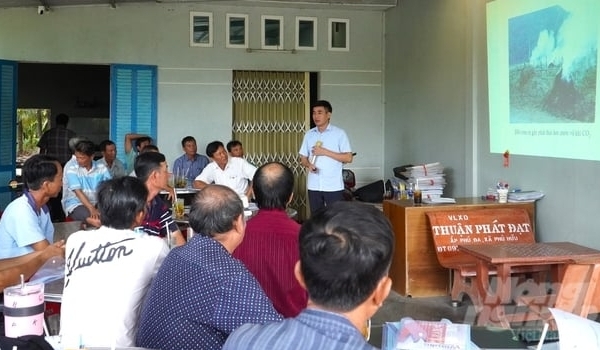
(VAN) From May 17-23, the National Agricultural Extension Center (NAEC) conducts training classes on the advanced rice farming process at 5 localities piloting for the 1 million ha of high-quality rice scheme.
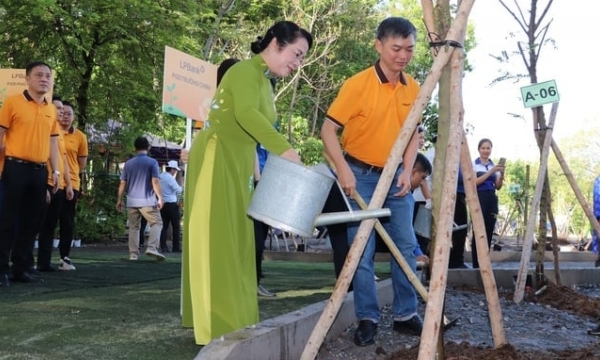
(VAN) Planting and expanding green spaces is a crucial effort to mitigate and adapt to the impacts of climate change, thereby creating a clean and livable environment.
/2024/05/17/5720-1-134847_782.jpg)
(VAN) EcoTraceTech - System for measuring CO2 and CH4 emissions from rice plants is the startup idea of a group of Can Tho University students.
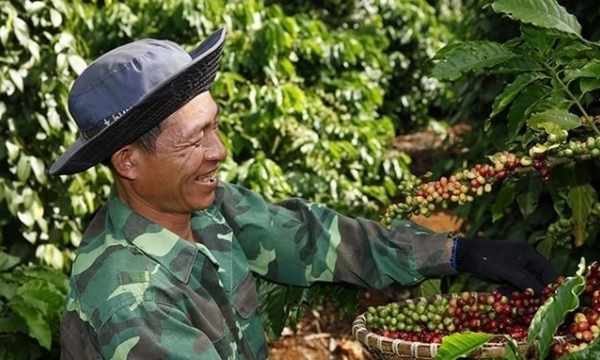
(VAN) The NESCAFÉ Plan by Nestlé Vietnam in the Central Highlands together with MARD aims to support coffee farmers in regenerative agriculture.